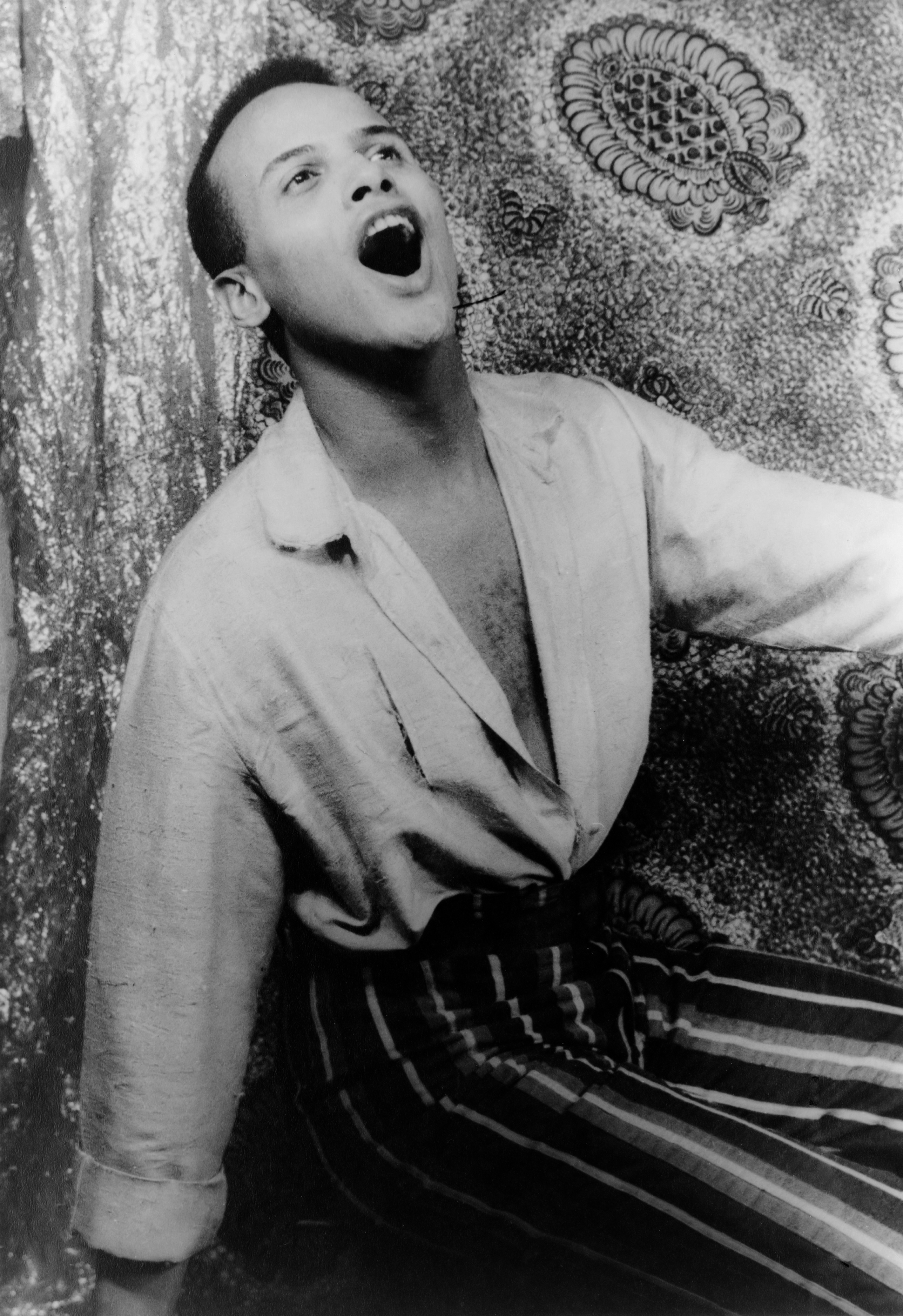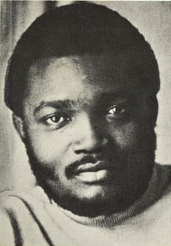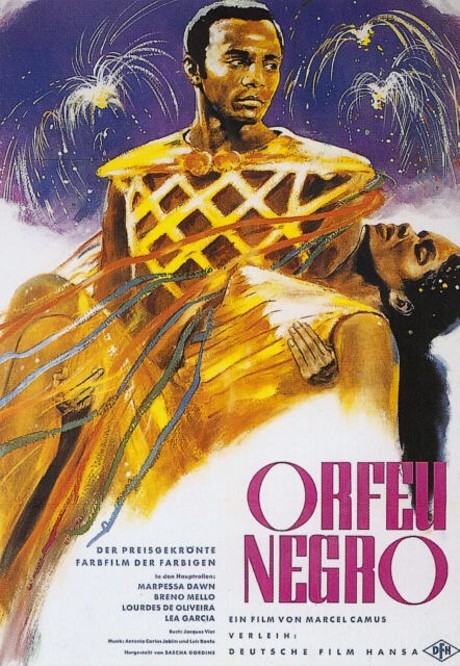|
The Many Voices Of Miriam Makeba
''The Many Voices of Miriam Makeba'' is a 1962 studio album of Miriam Makeba (LP Kapp KL1274). Track listing All tracks composed by Miriam Makeba; except where indicated #"Kilimanjaro (Hunting Song and Boot Dance)" ( Mackay Davashe, Tom Glazer) – 2:48 #"Zenizenabo (Courage Song for Warriors)" – 1:17 #"Ntjilo Ntjilo (Lullaby to a Child about a Little Canary)" – 2:23 #"Umqokozo (Children's game song About a new red dress)" – 2:05 #"Ngola Kurila (A Woman Pacifies Her Hungry Child. There Is Nothing to Eat)" – 3:13 #"Thanayi (Story song about a girl named Thanayi)" – 3:08 #"Liwa Wechi (Congolese Lament. The Wife Bids Her Husband Farewell As He Leaves For The Mines)" (Franco Luambo) – 2:49 #"Nagula (Witch Doctor Song)" – 1:36 #"Carnival (Theme from the Brazilian Movie ''Black Orpheus'')" (Luiz Bonfá) – 2:28 #"Night Must Fall (American)" (Bob Gordon, Priscilla Eaves) – 1:55 #"Love Tastes Like Strawberries (West Indian Ballad)" (Alma M. Saunders, B.J. Solomon) ... [...More Info...] [...Related Items...] OR: [Wikipedia] [Google] [Baidu] |
Miriam Makeba
Zenzile Miriam Makeba (4 March 1932 – 9 November 2008), nicknamed Mama Africa, was a South African singer, songwriter, actress, and civil rights activist. Associated with musical genres including African popular music, Afropop, jazz, and world music, she was an advocate against apartheid and white-minority government in South Africa. Born in Johannesburg to Swazi people, Swazi and Xhosa people, Xhosa parents, Makeba was forced to find employment as a child after the death of her father. She had a brief and allegedly abusive first marriage at the age of 17, gave birth to her only child in 1950, and survived breast cancer. Her vocal talent had been recognized when she was a child, and she began singing professionally in the 1950s, with the Cuban Brothers, the Manhattan Brothers, and an all-woman group, the Skylarks (South African vocal group), the Skylarks, performing a mixture of jazz, traditional African melodies, and Western popular music. In 1959, Makeba had a brief r ... [...More Info...] [...Related Items...] OR: [Wikipedia] [Google] [Baidu] |
African Music
Given the vastness of the African continent, its music is diverse, with regions and nations having many distinct musical traditions. African music includes the genres amapiano, Jùjú, Fuji, Afrobeat, Highlife, Makossa, Kizomba, and others. The music and dance of the African diaspora, formed to varying degrees on African musical traditions, include American music like Dixieland jazz, blues, jazz, and many Caribbean genres, such as calypso (see kaiso) and soca. Latin American music genres such as cumbia, conga, rumba, son cubano, salsa music, bomba, samba and zouk were founded on the music of enslaved Africans, and have in turn influenced African popular music. Like the music of Asia, India and the Middle East, it is a highly rhythmic music. The complex rhythmic patterns often involving one rhythm played against another to create a polyrhythm. The most common polyrhythm plays three beats on top of two, like a triplet played against straight notes. Sub-Saharan African m ... [...More Info...] [...Related Items...] OR: [Wikipedia] [Google] [Baidu] |
Kapp Records
Kapp Records was an independent record label started in 1954 by David Kapp, brother of Jack Kapp (who set up American Decca Records in 1934). David Kapp founded his own label after stints with Decca and RCA Victor. Kapp licensed its records to London Records for release in the UK. In 1967, David Kapp sold his label to MCA Inc. and the label was placed under Uni Records management; Kapp was consolidated with MCA's other record labels in 1971 and, in 1973, MCA Records released the last Kapp record. Catalogue albums that continued to sell were renumbered and reissued on the MCA label. Kapp's subsidiaries included Medallion Records (an audiophile label), Congress Records, Leader Records, and Four Corners Records with its "4 Corners of the World" logo. Four Corners was formed to promote European artists, such as Françoise Hardy, Raymond Lefèvre, and the Barclay Singers. Today, the Kapp Records catalog is owned by MCA's successor-in-interest Universal Music Group through its Geffen ... [...More Info...] [...Related Items...] OR: [Wikipedia] [Google] [Baidu] |
Miriam Makeba (album)
''Miriam Makeba'' is the self-titled debut"Recorded a year after the international hit musical ''King Kong'' (1959), which provided many black South African musicians with the opportunity to escape apartheid, Makeba's debut album paints a compelling portrait of the artist in exile." Miles Keylock, "Miriam Makeba" in ''1001 Albums You Must Hear Before You Die'' (Universe Publishing, 2005), p. 51. album by Miriam Makeba. It was released in 1960 by RCA Victor. Track listing Personnel * Miriam Makeba – vocals * Perry Lopez - guitar * The Belafonte Folk Singers The Belafonte Folk Singers (originally known as The Belafonte Singers) were a vocal group who were active from 1957 to 1965. They were named after singer Harry Belafonte Harry Belafonte (born Harold George Bellanfanti Jr.; March 1, 1927) is an ... conducted by Milt Okun Notes 1960 debut albums Miriam Makeba albums RCA Victor albums Gallo Record Company albums Albums conducted by Milt Okun {{1960s-a ... [...More Info...] [...Related Items...] OR: [Wikipedia] [Google] [Baidu] |
The World Of Miriam Makeba
''The World of Miriam Makeba'' is the third studio album by Miriam Makeba released by RCA Victor. It charted at #86 on the US album chart.Sylvia Lovina Chidi - The Greatest Black Achievers in History 2014 -- 1291909338 Page 129 "The Many Voices of Miriam Makeba (1960) (LP Kapp KL1274) Miriam Makeba (1960) (LP RCA LSP2267) The World of Miriam Makeba ... Pata (1967) (LP Reprise RS6274) #74" Hugh Masekela was credited as the conductor. Track listing All tracks composed by Miriam Makeba; except where indicated #"Dubula" – 2:45 #"Forbidden Games" (Barry Parker, Marc Lanjean) – 2:56 #"Pole Mze" – 2:15 #"Little Boy" (Arranged by Miriam Makeba) – 3:22 #"Kwedini" (Jonas Gwangwa) – 2:15 #"Vamos Chamar Ovento" (Dorival Caymmi) – 3:22 #"Umhome" – 2:51 #"Amampondo" – 1:55 #"Wonders and Things" (Carol Hall Carol Hall (April 3, 1936 – October 11, 2018) was an American composer and lyricist. She was best known for composing the music and lyrics for the Broadway stage musical ... [...More Info...] [...Related Items...] OR: [Wikipedia] [Google] [Baidu] |
AllMusic
AllMusic (previously known as All Music Guide and AMG) is an American online music database. It catalogs more than three million album entries and 30 million tracks, as well as information on musicians and bands. Initiated in 1991, the database was first made available on the Internet in 1994. AllMusic is owned by RhythmOne. History AllMusic was launched as ''All Music Guide'' by Michael Erlewine, a "compulsive archivist, noted astrologer, Buddhist scholar and musician". He became interested in using computers for his astrological work in the mid-1970s and founded a software company, Matrix, in 1977. In the early 1990s, as CDs replaced LPs as the dominant format for recorded music, Erlewine purchased what he thought was a CD of early recordings by Little Richard. After buying it he discovered it was a "flaccid latter-day rehash". Frustrated with the labeling, he researched using metadata to create a music guide. In 1990, in Big Rapids, Michigan, he founded ''All Music Guide' ... [...More Info...] [...Related Items...] OR: [Wikipedia] [Google] [Baidu] |
Mackay Davashe
Makwenkwe "Mackay" Davashe (1920–1972) was a South African musician. He achieved success as a saxophonist and composer with the Manhattan Brothers and later the Jazz Epistles. Biography Davashe was born in 1920 in the South African city of East London. He played the pennywhistle in his youth before switching to the saxophone. He toured with several older musicians, including the Jazz Maniacs, a top South African orchestra, in the mid-1940s, and in 1952 several bands in the Johannesburg region sought to cover "Majuba", a song he wrote. That year, ''Drum'' magazine wrote that Davashe's "renditions of African themes are the best we have had so far". In 1950 he was leading a group called the Shantytown Sextet, in which Kippie Moeketsi played. Davashe's style at the time was described as similar to that of tenor saxophonist Coleman Hawkins. By the mid-1950s Davashe had developed an interest in bebop, and began collaborating with Dollar Brand (later known as Abdullah Ibrahim). The ... [...More Info...] [...Related Items...] OR: [Wikipedia] [Google] [Baidu] |
Franco Luambo
François Luambo Luanzo Makiadi (6 July 1938 – 12 October 1989) was a Congolese musician. He was a major figure in 20th-century Congolese music, and African music in general, principally as the leader for over 30 years of TPOK Jazz, the most popular and significant African band of its time. He is referred to as Franco Luambo or simply Franco. Known for his mastery of African Rumba, he was nicknamed by fans and critics "Sorcerer of the Guitar" and the "Grand Maître of Zairean Music", as well as Franco de Mi Amor by female fans. His most known hit, "Mario", sold more than 200,000 copies and was certified gold. Early life Born July 6, 1938 in his mother's hometown of in what was then the Belgian Congo, he grew up in the capital city, Léopoldville (now Kinshasa). When his father, a railroad worker, died in 1949, he ended his formal education at age 10 or 11 and helped his mother by playing a homemade guitar, harmonica and other instruments to attract customers to her market ... [...More Info...] [...Related Items...] OR: [Wikipedia] [Google] [Baidu] |
Black Orpheus
''Black Orpheus'' (Portuguese: ''Orfeu Negro'' ) is a 1959 romantic tragedy film made in Brazil by French director Marcel Camus and starring Marpessa Dawn and Breno Mello. It is based on the play '' Orfeu da Conceição'' by Vinicius de Moraes, which is itself an adaptation of the Greek legend of Orpheus and Eurydice, set in the modern context of a ''favela'' in Rio de Janeiro during '' Carnaval''. The film was an international co-production among production companies in Brazil, France and Italy. The film is particularly noted for its soundtrack by two Brazilian composers: Antônio Carlos Jobim, whose song " A felicidade" opens the film; and Luiz Bonfá, whose "Manhã de Carnaval" and "Samba de Orfeu" have become classics of ''bossa nova''. The songs sung by the character Orfeu were dubbed by singer Agostinho dos Santos. Lengthy passages of the film were shot in the Morro da Babilônia, a ''favela'' in the Leme neighbourhood of Rio de Janeiro. ''Black Orpheus'' won the Palm ... [...More Info...] [...Related Items...] OR: [Wikipedia] [Google] [Baidu] |
Luiz Bonfá
Luiz Floriano Bonfá (17 October 1922 – 12 January 2001) was a Brazilian guitarist and composer. He was best known for the music he composed for the film ''Black Orpheus''. Biography Luiz Floriano Bonfá was born on October 17, 1922, in Rio de Janeiro. He began studying with Uruguayan classical guitarist Isaías Sávio at the age of 11. These weekly lessons entailed a long, harsh commute (on foot, plus two and half hours on train) from his family home in Santa Cruz, in the western rural outskirts of Rio de Janeiro, to the teacher's home in the hills of Santa Teresa. Given Bonfá's extraordinary dedication and talent for the guitar, Sávio excused the youngster's inability to pay for his lessons. Bonfá first gained widespread exposure in Brazil in 1947 when he was featured on Rio's Rádio Nacional, then an important showcase for up-and-coming talent. He was a member of the vocal group Quitandinha Serenaders in the late 1940s. Some of his first compositions such as "Ranchi ... [...More Info...] [...Related Items...] OR: [Wikipedia] [Google] [Baidu] |
Irving Burgie
Irving Louis Burgie (July 28, 1924 – November 29, 2019), sometimes known professionally as Lord Burgess, was an American musician and songwriter, regarded as one of the greatest composers of Caribbean music. "Irving Burgie", ''Songwriters Hall of Fame'' Retrieved 2 December 2019 He composed 34 songs for , including eight of the 11 songs on the Belafonte album '' Calypso'' (1956), the first album of any kind to sell one million copies. Burgie also wrote the lyrics of the [...More Info...] [...Related Items...] OR: [Wikipedia] [Google] [Baidu] |



